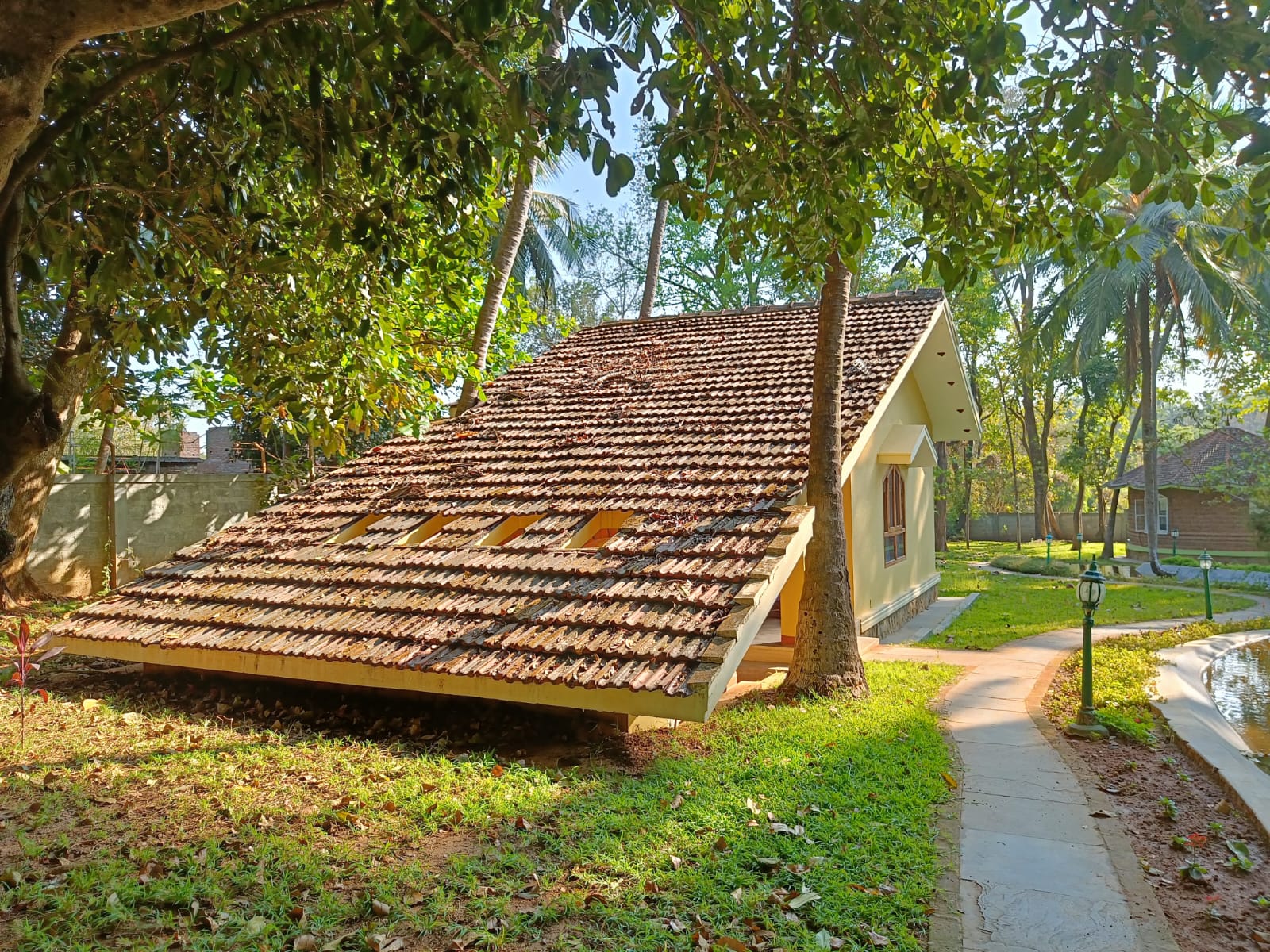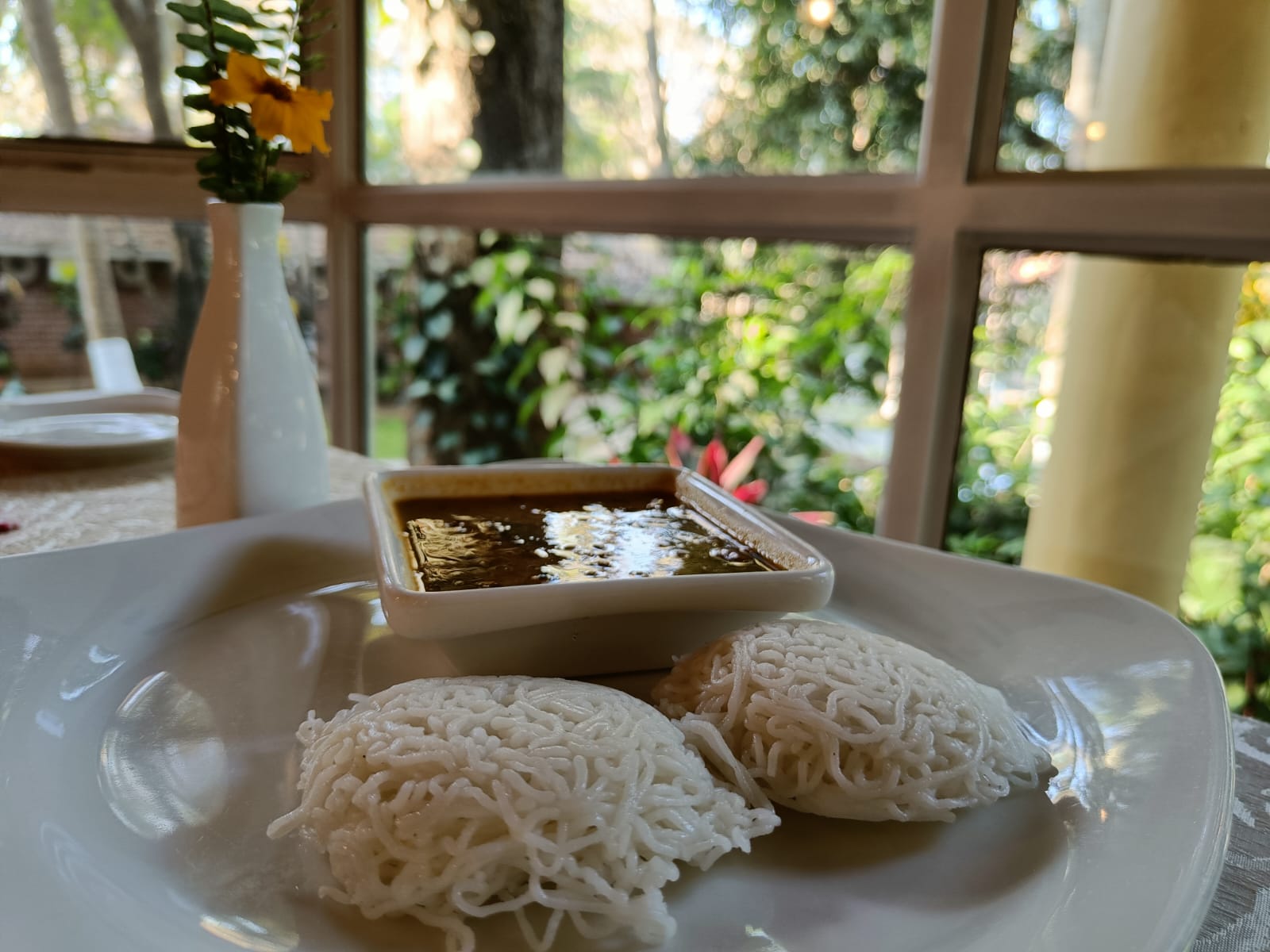On a still afternoon, a pond heron inspects the waters closely for floating insects. Sipping pink detox water by the gently swaying coconut trees, I inspect the bird in turn. The winged creature’s meditative state is inspiring, and soon enough I’m in no hurry anymore, as I await the final session of my healing program outside the treatment room of an Ayurvedic retreat in a small South Indian village.
When Kairali reopened its doors to the public in last year, it did so with a brand new yoga deck and a detailed program for healing post COVID. The program was designed to cleanse the system completely to get rid of any bacteria that the disease might have left. “Since this is a new ailment with side effects we are still discovering each day, it's important to ensure a thorough cleaning of the system to rid it of virus remnants that leave behind any long-term impact”, says Dr Priya Devi, my leading doctor and chief physician at Kairali.
 The week-long detox begins by a consultation to determine the body type as per the balance of vata, pitta and kapha, the three pillars of Ayurveda based on the elements of air, fire and earth, the proportions of which define the imbalance in an individual’s body. This is followed by streamlining food habits, starting with meals that follow the guidelines of Ayurveda and sustainable eating, be it eating fresh what grows locally, cooking in native oils and spices, or the minimal use of additives. Simple eating, however, means in no way that the cuisine lacks flavour; from banana stem thoran to pumpkin chutney, and from moong daal payasum to coconut jaggery snack balls, I relish every meal here and look forward to the next one. The food is innovative and delicious, and most ingredients come from Kairali’s organic farm.
The week-long detox begins by a consultation to determine the body type as per the balance of vata, pitta and kapha, the three pillars of Ayurveda based on the elements of air, fire and earth, the proportions of which define the imbalance in an individual’s body. This is followed by streamlining food habits, starting with meals that follow the guidelines of Ayurveda and sustainable eating, be it eating fresh what grows locally, cooking in native oils and spices, or the minimal use of additives. Simple eating, however, means in no way that the cuisine lacks flavour; from banana stem thoran to pumpkin chutney, and from moong daal payasum to coconut jaggery snack balls, I relish every meal here and look forward to the next one. The food is innovative and delicious, and most ingredients come from Kairali’s organic farm.
Food is given a break on the day of virechana or purging, when a herbal concoction is ingested on an empty stomach. The treatment is preceded and followed by various massages as determined by the doctor, from a full body abhyangam to get the circulation going, to specific ones such as shirodhara that involve pouring a constant stream of oil focused on the forehead if headache was a big part of your battle with COVID, or a hot potli if body ache and joint pain were major complains, and the final indulgence of ksheerdhara that uses milk and herbs. To avoid wastage, and aided by the ergonomics of the traditional wooden massage table, the same infusion is collected and poured over the body multiple times. Sustainability is the newest buzzword in many spheres including wellness travel, but in Ayurveda, the oldest known form of wellness, sustainable practices have always been a given.
Throughout these treatments, the bark of pathimugam or the Indian red wood that is native to Kerala, is infused in water and served. ‘Pink water’ has been a part of the local way of living, believed to keep the kidneys healthy and toxins at bay, and flasks filled with it are placed in the rooms and constantly replenished. The rooms at Kairali are designed keeping astrological charts in mind, and if you’re fortunate, you get to stay in the one that aligns with your birth chart. But even if you don’t get to do that, the narrow canal that meanders past your room, , a meditative morning at a thousand-year old Annapurna devi temple close by, and sunset walks in the paddy fields around, all collectively participate in elevating Kairali from a mere health centre to a place true to its tag line, a hamlet of beauty and healing.
Kairali is 65 kms from the Coimbatore airport. For more information, visit www.kairali.com
























